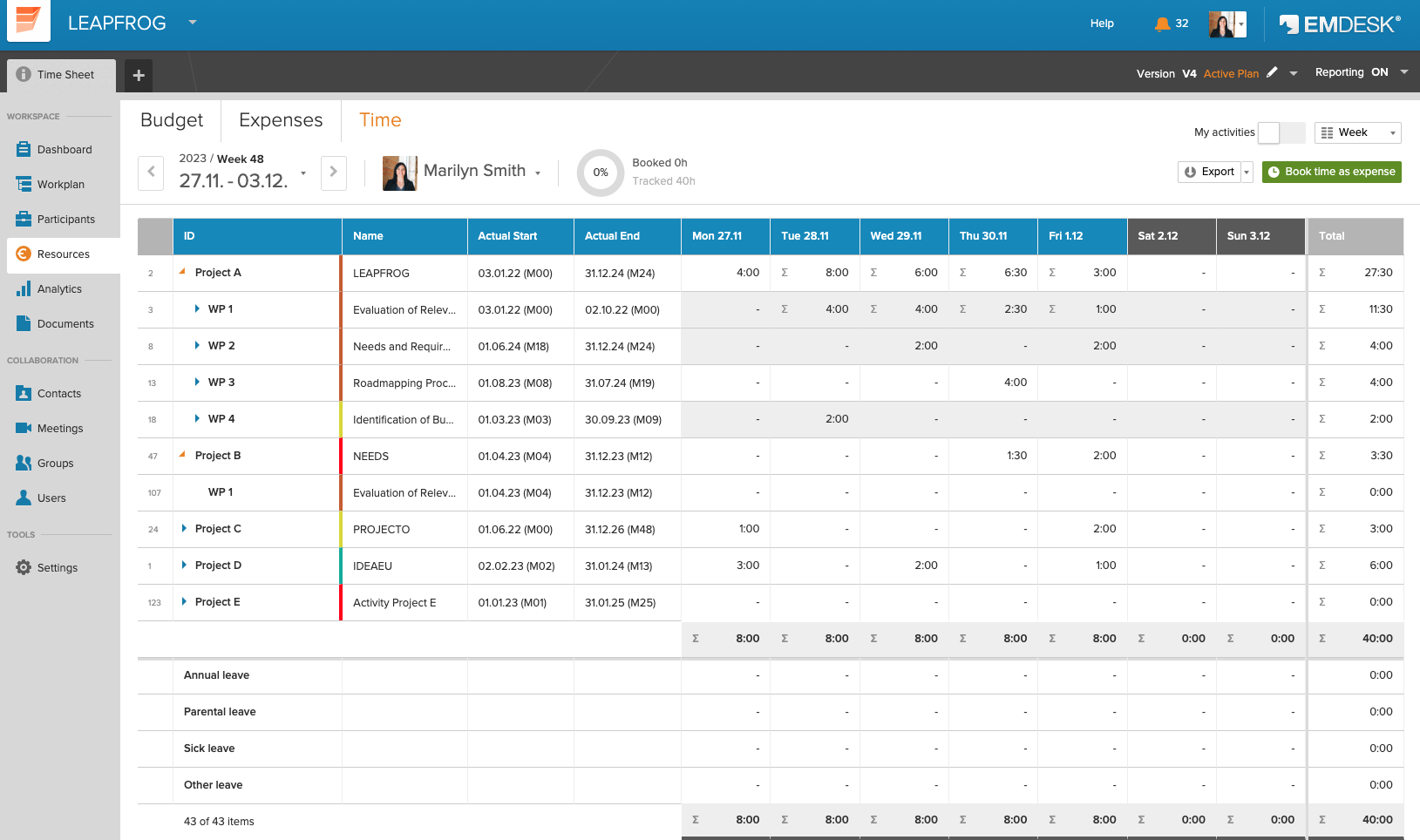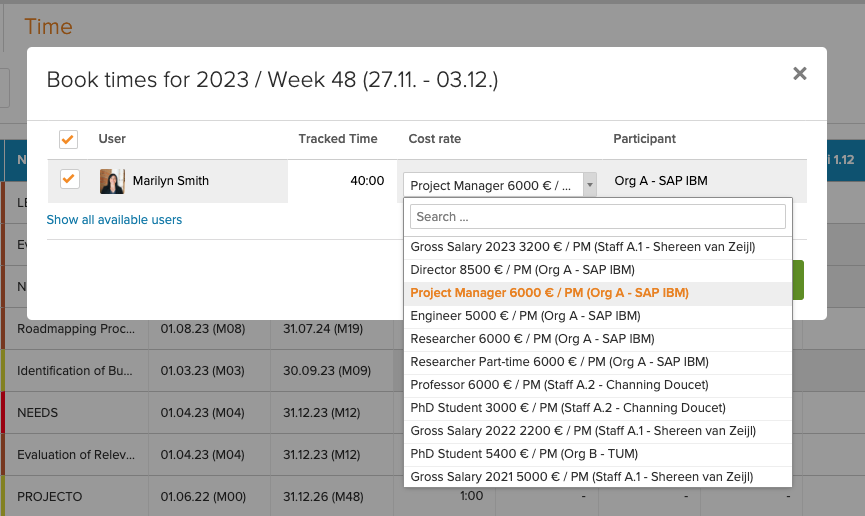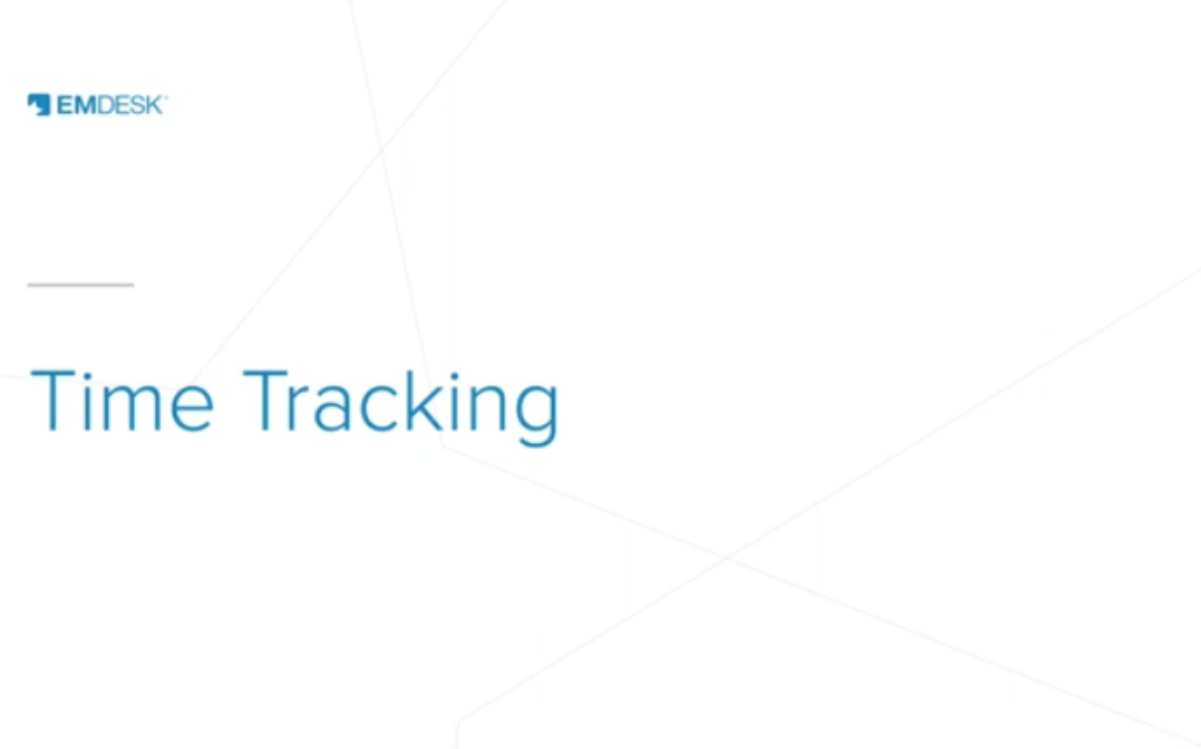Since time tracking in Horizon Europe projects is not just a procedural requirement, understanding its nuances is crucial for project compliance, efficiency, and success. Time management is a fundamental aspect of Horizon Europe project tracking that directly impacts the project's financial integrity, compliance with EU regulations, and overall success. Effective project time tracking practices enable project managers to make better decisions, optimise resource allocation, maintain budget control, and ensure transparency and accountability.
The importance of project time tracking in Horizon Europe
Time tracking in Horizon Europe projects holds paramount importance primarily because it directly influences two critical areas: compliance with EU funding rules and the overall success of the project.
Compliance with EU funding rules
One of the key requirements for projects funded by Horizon Europe is accurate financial reporting. Time tracking plays a crucial role here, as it provides a basis for calculating personnel costs, which are often a significant portion of the project budget. The European Commission requires detailed records of the time each employee spends on the project to justify the costs claimed.
Secondly, projects under Horizon Europe are subject to audits by the European Commission or its appointed agents. During these audits, one of the primary documents reviewed is the time records. Properly maintained and accurate time tracking ensures that the project can pass these audits without issues, which is essential for maintaining funding and avoiding financial penalties.
Also, the grant agreement for Horizon Europe projects stipulates specific conditions regarding project execution, including how time and resources should be managed. Time tracking ensures that these contractual obligations are met, demonstrating that the project is being executed as agreed and that EU funds are being used appropriately.
Impact on project success
First of all, effective time tracking provides insights into how human resources are allocated and utilized throughout the project. This information is crucial for project managers to make informed decisions about workload distribution, identify potential bottlenecks, and adjust plans as necessary to ensure the project stays on track.
By tracking the time spent on various tasks and activities, project managers can efficiently monitor if the project is adhering to its budget. This is particularly important in Horizon Europe projects, where staying within the budget is often a condition of continued funding.
Time tracking data can be also used to measure the performance of both individuals and the project as a whole. Understanding which tasks are taking more time than anticipated can help in identifying areas that need more attention or a different approach.
Understanding Horizon Europe's time tracking requirements
Understanding the time tracking requirements for Horizon Europe projects is crucial for ensuring compliance with the European Union's regulations for project management and funding. Horizon Europe, as the EU's key funding program for research and innovation, has specific guidelines and standards that beneficiaries must adhere to, particularly in the area of time tracking. Here are some key aspects of these requirements:
- Accurate and reliable time recording: Horizon Europe requires that all time spent on a project by teams and individuals is recorded accurately and reliably. This means keeping detailed records of the hours worked by each team member on the project. These records should be contemporaneous, meaning they should be recorded in real-time or shortly after the work is done.
- Time recording tools: While Horizon Europe does not mandate a specific type of time recording tool, the chosen system must be able to provide auditable and traceable records. This can range from traditional paper-based timesheets to sophisticated digital time tracking systems. Many organisations opt for digital solutions for efficiency and accuracy.
- Documentation requirements: The time records must be supported by evidence such as working contracts, payroll records, and attendance records. The documentation should clearly demonstrate the work performed and its relevance to the project.
- Full-time and part-time tracking: For full-time employees working exclusively on the project, a simple confirmation that 100% of their working time is dedicated to the project is often sufficient. However, for part-time employees or those splitting their time between multiple projects (including non-Horizon Europe projects), a more detailed recording of time allocation is necessary. This should reflect the actual hours worked on the Horizon Europe project.
- Compliance with labor laws: Time tracking practices must also be in compliance with the national labor laws of the country where the beneficiary is based. This includes adherence to regulations regarding working hours, overtime, and employee rights.
- Regular updates and reviews: Time records should be updated regularly (typically monthly) and reviewed for accuracy. This ensures that any discrepancies or issues can be identified and addressed promptly.
- Audits and inspections: Beneficiaries of Horizon Europe funding should be prepared for potential audits or inspections by the European Commission or its designated agencies. During such audits, accurate and well-maintained time tracking records are essential. These records will be scrutinised to ensure that the reported work aligns with the project objectives and funding rules.
- Project deliverables and time tracking: The time spent on specific tasks should correlate with the project's deliverables and milestones. This alignment is crucial for demonstrating that the project is progressing as planned and that resources are being used efficiently and effectively.
- Data privacy and security: When implementing digital time tracking systems, it's essential to consider data privacy and security, especially when handling personal information of employees. The system should comply with relevant data protection laws, such as the General Data Protection Regulation (GDPR) in the EU.
Common hurdles and solutions in project time tracking for Horizon Europe
Project time tracking for Horizon Europe presents several challenges, often stemming from the need for precision, consistency, and integration with other project activities. Addressing these challenges is crucial for ensuring compliance with EU funding rules and the overall success of the project.
1. Maintaining accurate records
- Complexity of tasks: Projects under Horizon Europe often involve complex and multifaceted tasks, making it difficult to accurately capture the time spent on each activity.
- Solution: Implement detailed categorisation of tasks and sub-tasks in the time tracking system. EMDESK's detailed task categorisation and user-friendly timesheet interface encourage team members to record their time accurately and promptly. Its real-time tracking capabilities help in minimising recall bias and errors.

2. Integration with other project activities
- Disparate systems: Time tracking systems might be separate from other project management tools, leading to disjointed data and inefficiencies.
- Solution: Use integrated project management tools like EMDESK, which combine time tracking with other functionalities like daily rates, personnel cost reporting, task management, resource allocation, and budgeting. This integration ensures a holistic view of the project’s progress and resource utilisation.

3. Consistency across the team
- Varied understanding and approaches: Different team members might have varying levels of understanding and approaches to time tracking, leading to inconsistencies.
- Solution: Establish clear, standardised guidelines for time tracking and ensure they are communicated effectively to the entire team. Standardised time tracking protocols within EMDESK, coupled with its easy-to-understand interface, ensure uniformity in time tracking practices across the team.
4. Time tracking accuracy
- Estimation errors: Team members might inaccurately estimate the time they spend on tasks, either underreporting or overreporting their hours.
- Solution: Implement regular reviews of time entries and provide feedback. EMDESK’s review and feedback mechanisms allow for regular monitoring of time entries. Its analytical tools can highlight discrepancies and trends in time reporting, aiding in maintaining honesty and accuracy.
